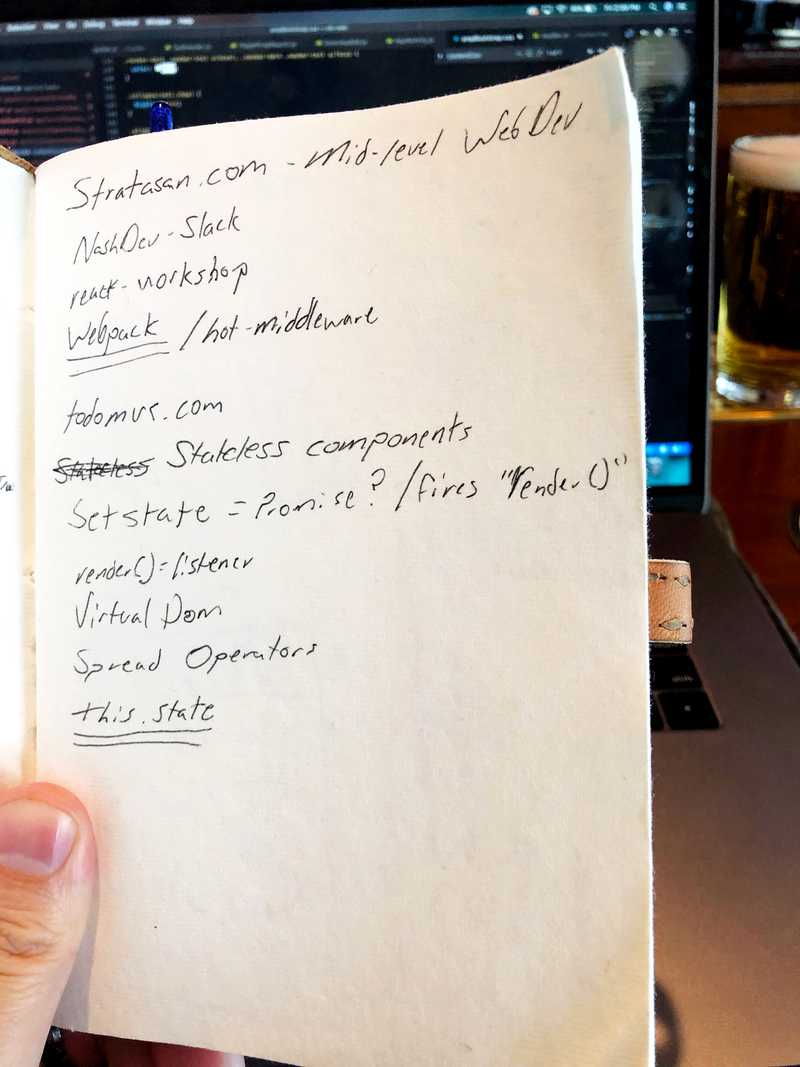Page 2
Intro to React
Page 2
For context of Notebook posts click here
React
Let’s ignore the job opportunity that I listed and just into my notes. I can’t remember where or why I took these notes, but they seemed important at the time.
- NashDev - Slack
I will say that Slack is very important, a great tool for learning, and finding a job. I write down a lot of bullshit, but this is relevant. Join your cities Slack channel and be active, it helps.
- Webpack
Honestly this deserves about 5 more underlines because I still don’t understand Webpack completely and not sure I ever will. Thankfully a lot of tools take out the confusion of Webpack (create-react-app, gatsby, etc), but if you are interested in front end development a good understanding of this is a must.
- TodoMVC.com
TodoMVC.com is a really cool site to get an understanding of how different libraries / frameworks utilize state to build a simple Todo list. It’s worth checking out.
- React Shit
I am going to lump the rest together as React Shit (proper term), not all is only react for disclaimer.
4a. The first high level idea in React is stateless / statefull components. Think of it this way, you can create a react app using all statefull components, but it’s not optimized assuming not every component has state. It is better to separate and use stateless / dump components when its a view only layer.
const Hello = () => <h1>Hello</h1>
4b. Virtual DOM. This is a core component with React. React has a virtual DOM which is defined as “The virtual DOM (VDOM) is a programming concept where an ideal, or “virtual”, representation of a UI is kept in memory and synced with the “real” DOM by a library such as ReactDOM.” The virtual dom is how React knows what to update on the DOM.
4c. Spread Operator. Basically means “Array, give me all your shit”. That’s how I learned spread operator.
const numbers = [1,2,3]
console.log(numbers) // [1,2,3]
console.log(...numbers) // 1 2 34d. this.state If you use react, you will use this. In short, this.state is how you would “access” state for React (at a very high level).
In Summary
Everyone starts somewhere. I wrote down these things because I didn’t understand them at the time. It’s ok to be confused and it’s ok to Google. I still do everyday.
Cover Photo - Photo by Me
